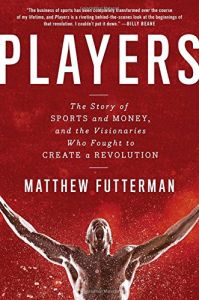Join getAbstract to access the summary!

Join getAbstract to access the summary!
Matthew Futterman
Players
The Story of Sports and Money, and the Visionaries Who Fought to Create a Revolution
Simon & Schuster, 2016
What's inside?
Follow the incredible rise of professional sports to a multibillion-dollar industry.
Recommendation
Wall Street Journal sportswriter Matthew Futterman presents a history of how sports in the United States – and then worldwide – became the gigantic business it is today. Futterman tells this episodic saga through the experiences of several athletes, teams and sports-oriented cable networks. Futterman is a newspaper writer presenting his first full-length book, and each chapter stands alone as a self-contained history. He includes many details of his research, especially dollar amounts and contract lengths. While intriguing, these details sometimes break up the flow of his chapters. Don’t let them block your path to his broader but worthwhile societal points. Futterman’s compelling collection of stories will appeal to those fascinated by the rise of professional sports and the various TV and players-union battles each spawned. getAbstract also recommends his well-researched backgrounder to fans interested in sports economics.
Summary
About the Author
Senior special writer for sports at The Wall Street Journal Matthew Futterman was part of a New Jersey Star-Ledger team than won a 2005 Pulitzer Prize for Breaking News Reporting.


















Comment on this summary